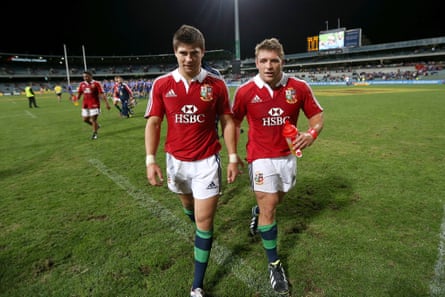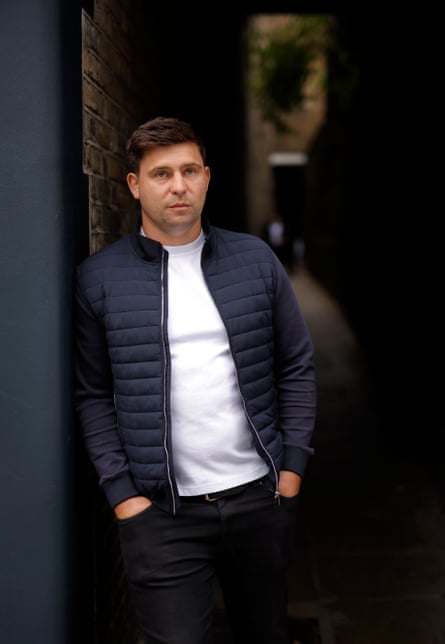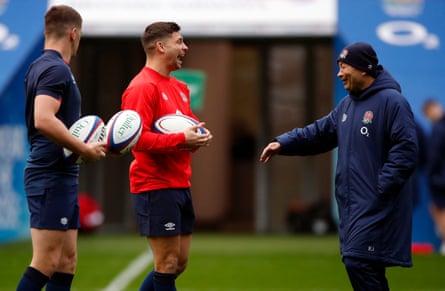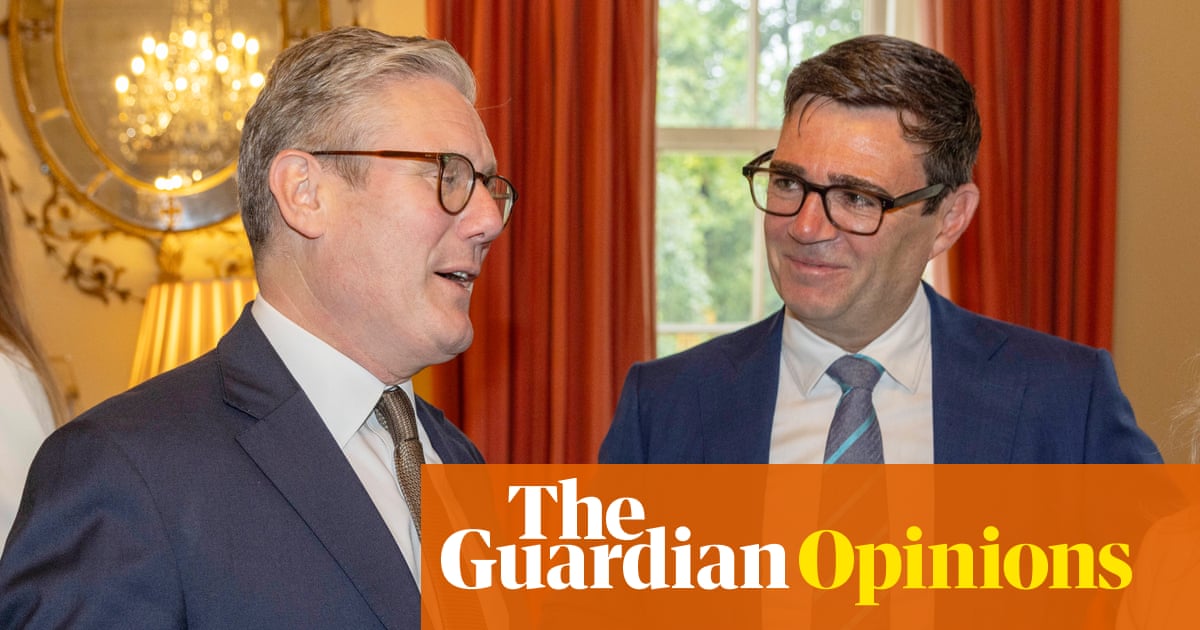“I found it hard, I really did,” Ben Youngs says as he explains why it was once so difficult to embrace his achievement of playing more times for England than any other men’s rugby player. Youngs won 127 caps and featured in four World Cups, but he used to look down at the ground whenever his longevity was mentioned.
Youngs retired from international rugby at the end of 2023, and played his last game for Leicester in the Premiership final in June, and so he can now give public voice to the trauma he carried for so long. While his sister-in-law Tiffany suffered for years with blood cancer, and his brother-in-law Jake endured motor neurone disease, Youngs played for England. He often felt as if he was putting himself ahead of everyone else while his brother and sister lost their partners to terminal illness.
“It went on for a very long time,” he says, “and it’s all connected with trying to put on a brave face and play for 80 minutes while everyone forgets and, then, once the game’s finished, you’re checking in: ‘How is he? How is she?’”
Why would Youngs look ashamed whenever he was praised? “It was definitely the guilt. People are patting you on the back and telling you how great you are. And you’re thinking: ‘But I don’t feel that.’ Ultimately the bit that kept me going was that I had to do it for them. My obligation was: go out, play, let them forget about what’s going on for 80 minutes and bring some joy. But you become guilty because on the outside you’re suddenly beating Jason Leonard’s record [of 114 England Test caps] and it’s all smoke and mirrors.”
In his moving new book, Youngs describes how the dam finally broke when Steve Borthwick left him out of the matchday squad for England’s opening match of the 2023 World Cup. Stunned by his omission, Youngs broke down with the England psychologist, David Priestley. “I was sobbing uncontrollably,” he says. “Crying, crying and crying some more. It felt like I was never going to stop.”
Youngs has reconciled his inner conflict: “I’m grateful David was there because if I had not spoken to him then I could have easily become very resentful towards rugby and people within the game. But it gave me a bit of clarity and peace that, actually, what I did was all right. You shouldn’t feel guilty.”

These revelations are matched by the candour of Youngs’s assessment of various coaches. He addresses the apparent shortcomings of Borthwick, Stuart Lancaster and Warren Gatland in bracing detail and his criticism sounds even more credible when it is balanced by the admiration Youngs expresses for other aspects of their work.
Borthwick’s perceived lack of empathy is the most damning accusation. When Borthwick, having been Eddie Jones’s assistant at England, coached Leicester, Youngs writes: “I met Eddie for a coffee. He wanted to talk about how things were for Tiff and [Youngs’s brother] Tom and whether he could do anything to help. He wanted to know how I was doing emotionally. It was strange that my club coach, who I saw every day, never asked the same question. Unbelievable, actually. What sort of man management was that? What sort of basic human decency, even? I guess if it wasn’t written on a data sheet, Steve didn’t compute.”
Youngs is dubious of the “one-dimensional rugby” they played at Leicester, but he still praises Borthwick as “a very good coach. You certainly don’t go into a game in any grey area. You know what your job is and what the gameplan is, and he’s very thorough.”
Borthwick sometimes consigned Youngs to the bench for key games with Leicester . “There were obviously aspects of my game he wasn’t a fan of. I never got to the bottom of it because he’s not someone you could sit down and go: ‘What do I need to do?’ You don’t get that empathy, that dialogue.”
Does Borthwick have realistic hopes of forging a squad good enough to win the World Cup in 2027? “I think he has, yes. When you get the right people around him it’s possible. That’s the key with any coaching group.

“We were so successful between 2016 and 2020 because Eddie had great coaches [including Borthwick] in and around him. If they can get the balance within the coaching group right for 2027, England have a great chance.”
Youngs adds that “Lee Blackett [the former Wasps director of rugby] coming in as attack coach will be a great addition. And on the back of the last two Six Nations games and the Argentina tour you have a really positive team. So they can be very good in 2027.”
The communication and managerial skills of a head coach remain vital. Youngs describes the supposed lack of these attributes in Lancaster during England’s disastrous home World Cup in 2015. He acknowledges that Lancaster was still at a formative stage of his career, and he has since accumulated far more experience in Ireland and France, but he is withering in assessing the coach’s work with England. Youngs suggests that Lancaster seemed fearful of the media and, under him, “playing for England felt like being back at school”.
Young is even more blunt when stressing how Lancaster failed to engage with his squad when he was needed most. After England were destroyed 30-3 by Wales in a grand slam decider in 2013, “the dressing room was a truly dark place. We were stunned … Lanny said nothing after that game. That was a dereliction of duty.”
Similarly, after England lost to Wales in the World Cup at home, “we were let down again afterwards by Lanny. He didn’t address the team in the dressing room, when we really needed him to, or on the bus. There was nothing from him.”
Youngs found that same lack of communication in Gatland during the Lions’ winning series in Australia in 2013. “There was this perception of Gats as some sort of coaching genius after all the success he had enjoyed with Wales, but if I’m honest I didn’t see it. He didn’t say much, he didn’t get to know you.”
The 36-year-old laughs when I say it looks as if I am lining up his former coaches in a row to be shot down. The more nuanced truth is that he finds positives even in those coaches with whom he didn’t gel. “Gats’s strengths are probably more around being a selector not a tactical coach,” Youngs says. “He’s not even a coach. His strength is selection and making those big calls and being very bold. It’s just very hard to build up any rapport with him because he’s very quiet. Some would say shy. I don’t know.”
after newsletter promotion
Jones, in contrast, made him feel “like a world-beater” and created the 2019 World Cup squad that Youngs says was the most “connected” group in his 13-year international career. For Youngs, adroit man-management “is everything. The best coaches I responded to were the people able to give you the gameplan – and as a half-back you need that – but also the connection and human aspect.

“I always responded better to Eddie, John Mitchell [the former England assistant coach who now leads the Red Roses] and Michael Cheika [who coached Leicester last season].”
Jones was often “brutal” towards other players and coaches but, for Youngs, “he invested in me to make me better. With Steve, it’s straight to rugby-data, what do we need, XYZ, to win. With Eddie it’s the same, but, before that, there’s a genuine engagement of: ‘What’s going on? How’s the family?’ That interaction really helped me.”
The 2019 World Cup final, which England lost to South Africa, is the one game that haunts Youngs. He also admits Jones lost his way in subsequent years. “People forget that we won the Six Nations in 2020 but the biggest downfall is that all the other coaches moved on. Eddie was never able to entice the same calibre of coaches and the balance was lost. He was very good with me, but I wasn’t naive. I saw how he would ride his staff very hard. That’s not right at times.
“Eddie couldn’t get the first-, second-, third- or fourth-best choice coach alongside him. So you suddenly got fifth or sixth choice and then the dynamics and balance are off. I don’t think he ever recovered from that.”
Youngs seems rejuvenated in retirement. He has found huge pleasure in the Women’s World Cup and will be at the final between England and Canada on Saturday. “The whole tournament has been brilliant. It’s shown everyone that there’s a huge appetite for women’s rugby. It’s incredibly entertaining. But once that final whistle goes on Saturday what’s the plan going forward – not just for the Red Roses but for all the other nations.
“We need more professional teams and we shouldn’t be in a situation in four years with the finalists needing to crowdfund their World Cup campaign, as Canada have done. It’s a wonderful, amazing story, but if it happens again then rugby’s failed.”

In his book Youngs offers an eight-point plan to make rugby more appealing to a new generation. His suggestions include reducing teams to 14 players, doing away with half-time, curbing the impact of kicking and playing the game as much as possible in the summer months of the northern hemisphere. Youngs admits there are so many difficulties in aligning the global calendar, but he hopes, at the very least, there will be restrictions in the use of substitutes so that natural fatigue opens up space for more expansive rugby.
In the meantime, rugby will rely on the warmth and honesty of its best characters – such as Youngs and Dan Cole, his friend and former teammate. Their For the Love of Rugby podcast has been a great success – epitomised by the 45 minutes where, after they lost the Premiership final against Bath, in their last match before retirement, they recorded a raw, painful yet funny episode the following day.
“Who knew that Coley had a personality?” Youngs says, joking. “Some people are in shock. For so long they’ve seen him run around the pitch, growling and berating the ref and now all of a sudden they get to know him. The podcast title says it all – I love the game. It’s shaped the person I am today, and to be able to talk about it has been great fun. The art’s in the editing, because we waffle and talk bollocks. Me and Coley are like two has-beens that sit in a pub, having a pint and telling everyone that we used to be able to move.”
Of course there are so many layers, and so much more depth, to Youngs and he pauses when I ask if, after the past turmoil, he has finally been able to feel proud of his record as England’s most-capped rugby player. “Yes,” he says with a wry smile. “I’m getting there.”
Beyond the Line by Ben Youngs is published by Pan Macmillan, priced £25. To support the Guardian, order your copy at guardianbookshop.com. Delivery charges may apply.

 3 months ago
96
3 months ago
96

















































